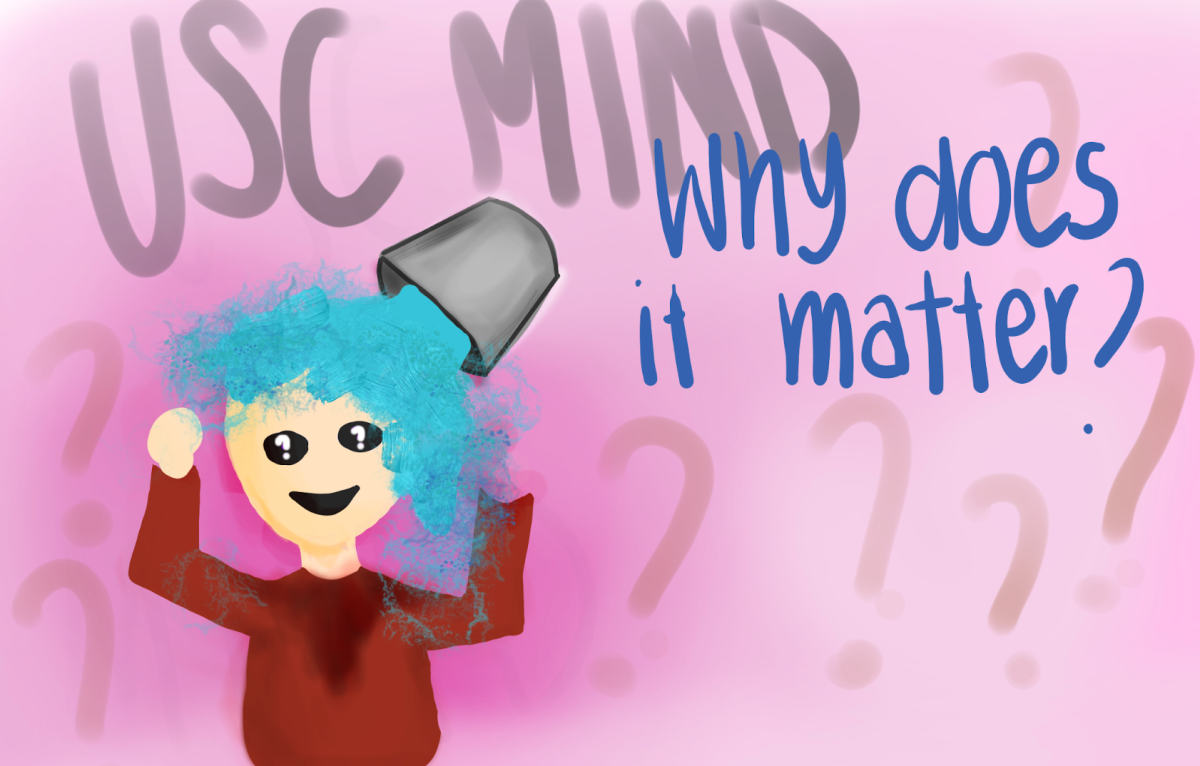Stemming from the 2014 ALS advocacy movement, the University of South Carolina (USC) revived the Ice Bucket Challenge through its Speak Your Mind campaign this April. Though originally intended to encourage students to open up about mental health, the trend has spiraled and lost its original motive. Students should be more deliberate about what they post on social media and the trends they participate in.
In the challenge, participants record themselves pouring a bucket of ice water over their heads, nominate their peers, and then share the video on social media. The trend originally encouraged people to tag others to help spread the message widely. However, as it gained popularity on platforms like Instagram and TikTok, fewer participants recognized — let alone understood — its original purpose, according to sophomore Arjun Pinninti.
“At one point, every story I saw on Instagram was the Ice Bucket Challenge,” Pinninti said. “I don’t remember anyone mentioning why the challenge mattered. I think most people just did it for the fun of it.”
The challenge’s premise is inherently contradictory — one of the main reasons people don’t share their mental health struggles is a lack of supportive peers or systems. By requiring participants to be tagged in order to take part, the trend may unintentionally exclude those who need support most. Rather than fostering inclusivity, it risks becoming a popularity contest.
In the mere 15-second clips of water being poured, there is little meaningful insight offered about mental health. Participants rarely provide context or resources, and without mentions of support lines or crisis tools, the videos offer little to those who are genuinely struggling.
Some view social media as a lighthearted form of entertainment that should not be weighed down by serious issues. However, the influence of social media has spiraled from what it used to be, it is no longer a place to simply share fun moments. It directly influences self-esteem and other aspects of students’ lives, serving as a crucial tool for addressing important topics that affect young people during their most vulnerable years, according to Tulane University. For many teens, online is where they live a large portion of their lives, yet social media is not being utilized to its full potential. For such a powerful space to be flooded with insincere content diminishes an opportunity to help those who need support.
“Every trend is just a repeat of what’s already been done. People copy whatever’s popular instead of posting anything authentic,” sophomore Jasmine Khaligov said. “It’s sad because social media could have been helpful for some people, but now nothing online feels real anymore, and it’s kind of hard to take seriously.”
The performative nature of many of these viral challenges often overshadows their purpose, making meaningful causes feel like fleeting entertainment. To truly advocate for important causes like mental health, content needs to explicitly address the causes and solutions of an issue. Pouring water over your head won’t help the issue, but starting a conversation might.





